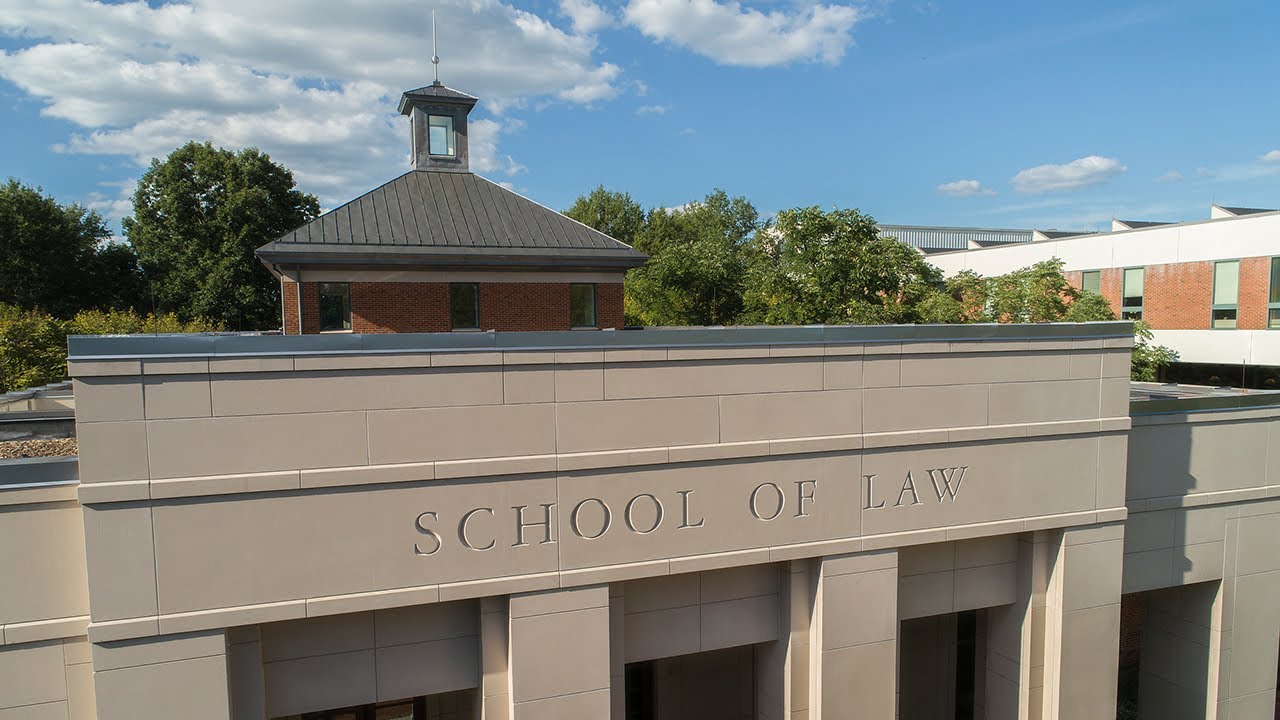LAW
Choosing the Best Law Schools for the Devout

Schools Pursuing a law degree is a significant life decision, but for devout individuals, it can go beyond academics and career paths—it’s also about staying true to their faith. Combining rigorous legal education with a supportive spiritual environment allows students to deepen their commitment to their beliefs while preparing for a successful career in law.
If incorporating faith into your educational experience is important to you, this list of the best law schools for devout students can guide your decision. Below, we’ll explore institutions that seamlessly blend world-class legal education with a spiritual ethos that aligns with various faith practices.
Why Choose a Faith-Based Law School?
For devout students, law schools with a clear spiritual component offer several unique advantages:
- Faith Integration
These schools encourage the study of law through the lens of faith, providing a moral and ethical foundation rooted in spiritual teachings.
- Supportive Community
Being surrounded by like-minded peers and mentors fosters a strong sense of belonging and support.
- Personal Growth
Faith-based law schools deliver not only academic rigor but also opportunities for spiritual reflection and development.
- Purpose-Driven Careers
Graduates often leave equipped to serve their communities in meaningful ways, whether through public service, advocacy, or faith-informed legal work.
With these benefits in mind, here are some of the most distinguished law schools that cater to devout students.
Top Law Schools for Devout Students
1. Notre Dame Law School (Catholic)
Notre Dame Law School in Indiana stands out for its unwavering commitment to integrating faith and reason. Here’s why it’s a top choice:
- Catholic Identity
Notre Dame emphasizes faith as a central part of the human experience, encouraging students to explore the intersection of law, morality, and justice.
- Curriculum
The school offers unique courses such as “Catholic Social Teaching and the Law,” which examines how faith principles apply to legal practice.
- Supportive Faith Community
Students can participate in regular worship services, retreats, and faith-based organizations.
Notre Dame Law School not only provides a top-tier legal education but also equips students with the moral compass to practice law ethically.
2. Liberty University School of Law (Christian Evangelical)
Located in Virginia, Liberty University is one of the leading institutions for evangelical Christians dedicated to pursuing a legal education.
- Biblical Worldview
Liberty’s law program is deeply rooted in a Christian worldview. Coursework emphasizes how faith informs justice and individual freedom.
- Christian Legal Society
Liberty offers extracurricular activities like the Christian Legal Society, which fosters spiritual growth and professional networking.
- Ethics-Driven Career Focus
Graduates regularly pursue work in government, advocacy, and nonprofit sectors, particularly in roles aligned with evangelical values.
Liberty University values both spiritual and academic excellence, ensuring that its graduates are ready to make a faith-driven impact in the legal field.
3. Pepperdine University Caruso School of Law (Christian)
Pepperdine’s Caruso School of Law in California is well-known for its Christian values and high academic standards.
- Faith-Based Education
Affiliated with the Churches of Christ, the law school incorporates religion into the curriculum without imposing particular doctrines on students.
- Nootbaar Institute on Law, Religion, and Ethics
This institute encourages dialogue about the relationship between law and religion, offering students opportunities for research and scholarship in the area.
- Strong Alumni Network
Pepperdine boasts an active alumni community of faith-driven professionals who mentor current students and support their career aspirations.
Pepperdine’s balance of academic rigor and spiritual reflection makes it an appealing choice for Christian students seeking a meaningful education.
4. Regent University School of Law (Christian Evangelical)
Another prominent evangelical law school, Regent University School of Law in Virginia Beach emphasizes servant leadership and applying legal expertise to further God’s kingdom.
- Curriculum
Regent’s courses frequently reference Biblical principles, offering classes like “Christian Foundations of Law.”
- Experiential Learning
The school supports hands-on internships with faith-based organizations, helping students gain skills while serving their communities.
- Campus Culture
Regent provides a close-knit community for devout students with shared values, including daily prayer opportunities and chapel services.
For students seeking to integrate a Biblical perspective into every facet of their law education, Regent provides a robust foundation.
5. Brigham Young University, J. Reuben Clark Law School (LDS/Mormon)
Located in Utah, the J. Reuben Clark Law School at BYU is an ideal setting for devout Latter-day Saint students—and for any student who values an ethical approach to the law.
- Religious Instruction
While primarily serving LDS students, BYU Law accommodates students of other religions looking to study law within a moral, family-centered framework.
- Global Opportunities
The school offers a unique “Law and Religion Fellowship,” which connects students to international discussions that explore legal systems and religious freedoms.
- Affordable Tuition
BYU keeps tuition significantly lower than most private institutions, making it an accessible option for students focused on service rather than high-paying corporate roles.
BYU Law is a testament to how moral and legal principles can harmonize to create a fulfilling education.
6. Baylor Law School (Christian Baptist)
If academic excellence and deep-rooted Baptist traditions are what you seek, Baylor Law School in Texas is an exceptional choice.
- Christian Principles with Academic Depth
Baylor weaves spiritual principles with an intensive focus on skill-building, preparing students for courtroom readiness.
- Pro Bono and Public Service Initiatives
The school emphasizes serving the underserved, a cause that resonates with faith-driven legal professionals.
- Faith-Inspired Mentorship
Faculty and staff are deeply committed to helping students grow both professionally and spiritually.
At Baylor Law, students graduate ready to practice law in a way that reflects God’s calling.
What to Consider When Choosing a Law School as a Devout Student
Selecting a law school that aligns with your faith is a deeply personal decision. Here are a few critical factors to consider:
- Denominational Fit
Does the school align closely with your faith tradition, or is it broadly ecumenical?
- Community Support
Look for schools that offer spiritual mentorship, faith-based extracurriculars, and structured worship opportunities.
- Career Goals
Determine whether the school provides opportunities to apply your faith to the kind of legal career you envision, such as public service, advocacy, or corporate law.
- Family and Lifestyle Needs
If you plan to attend with family or children, look for schools with strong family support systems.
- Accreditation and Opportunities
Ensure the law school is well-ranked and provides the resources required for bar exam preparation and career placement.
Build Your Legal Future Without Sacrificing Your Faith
For devout students, pursuing a legal education doesn’t have to mean compromising spiritual growth. By choosing one of these top law schools, you can develop expertise in law while staying deeply connected to your beliefs.
Are you ready to find a legal education that aligns with your faith? Explore these schools and connect with representatives to learn more about how their programs can help you achieve your career goals without losing sight of your spiritual foundations.
FAQs
1. Can I prioritize my faith while pursuing a legal degree?
Absolutely. Many law schools are designed to support students’ spiritual growth alongside their academic pursuits. These schools often provide faith-based organizations, chaplain services, and opportunities for worship to ensure you remain connected to your religious values throughout your studies.
2. Are faith-based law schools accredited?
Yes, the top faith-integrated law schools maintain full accreditation and meet all rigorous academic and professional standards, ensuring you receive a high-quality legal education.
3. Will a faith-based law school prepare me for the bar exam?
Definitely. These schools provide comprehensive academic resources and bar preparation programs that equip you with the skills and knowledge needed to succeed in your bar exam and legal career.
4. Can non-religious students attend these schools?
Of course. While these schools prioritize faith integration, they welcome students from all backgrounds. The supportive and inclusive environments at these institutions can benefit anyone pursuing a legal career, regardless of faith.
5. How do I choose the right faith-based law school for me?
Consider factors like the school’s faith integration, location, academic programs, support systems, and alignment with your career goals. Visiting campuses or speaking with admissions representatives can also help you make an informed decision.
LAW
The Rise of Bebasinindo More Than Just a Trend – It’s a Lifestyle

Language evolves with society—and sometimes, a single word becomes a whole movement. That’s exactly what Bebasinindo is turning into. But what is this trending term, and why is everyone suddenly using it? Let’s dive into the world of Bebasinindo, where language meets culture, freedom, and identity. Bebasinindo is a newly coined term that blends “bebas” (meaning “free” in Indonesian) with “inindo”, a suffix that hints at something uniquely Indonesian. Together, the word represents freedom of expression, individuality, and unfiltered creativity—all in an Indonesian context. It’s more than slang. It’s a mindset.
Why Is Bebasinindo Gaining Attention?
Bebasinindo is gaining massive attention because it speaks directly to a new generation that values freedom, authenticity, and self-expression. In a society that often emphasizes conformity and tradition, this term offers a refreshing sense of rebellion and individuality. It’s easy to say, fun to use, and loaded with meaning—making it perfect for viral content. Social media platforms have supercharged its reach, turning it into a cultural badge for those who want to be bold and unapologetically themselves. Simply put, Bebasinindo captures the spirit of modern Indonesia in just one word.
Historical and Cultural Roots
There’s no official dictionary that contains Bebasinindo—yet. The word grew from a blend of grassroots youth culture and online conversations. Many trace its roots back to Indonesian Gen Z forums, where bebas became a rallying cry. Traditionally, Indonesian society values politeness, harmony, and conformity. Bebasinindo breaks that mold. It’s the new rebellion—one that happens through memes, voice notes, and TikTok captions instead of protest signs.
Bebasinindo in Popular Culture
Platforms like Twitter (X), TikTok, and Instagram Stories catapulted Bebasinindo into viral status. Hashtags like #bebasinindo now feature skits, debates, poetry, and even song lyrics that celebrate free speech and open expression. Indonesian youth are savvy linguists. They’ve taken Bebasinindo and twisted it into:
- Bebasin aja (Just be free)
- Bebas banget inindo style (Super free, Indonesian-style)
It’s like the new YOLO—only more culturally rooted.
Bebasinindo in Different Regions
Even though the term started in Java, it’s spreading like wildfire across Sumatra, Bali, Sulawesi, and beyond. Jakarta, the cultural trendsetter, is the epicenter of Bebasinindo’s usage. Street art, spoken word nights, and indie brands all embrace it. In urban settings, Bebasinindo means open expression. In rural areas, it’s taken more cautiously—interpreted as a call for independence within social limits.
Social and Psychological Impacts
Bebasinindo is about owning your identity—language as a badge of who you are. It’s informal, bold, and 100% homegrown. Think of Bebasinindo as verbal graffiti—it reflects the collective mood of a younger, bolder, more outspoken generation. From memes to GIFs to short videos, #bebasinindo is now a cultural tag for content that feels authentic, rebellious, and hilarious. Bloggers, streamers, and podcasters are hopping on the Bebasinindo trend to build loyal communities. It’s content with soul.
Educational Perspectives
Unofficially, yes. Students use it among peers, especially in creative assignments or discussions around culture and identity. Teachers are recognizing that Bebasinindo reflects real language evolution, and some progressive educators are using it to teach media literacy.Some conservative figures argue that Bebasinindo promotes recklessness and disrespect for tradition. They see it as a linguistic rebellion. This clash has sparked debates on whether Bebasinindo corrupts or refreshes the Indonesian language.
The Business Side of Bebasinindo
Brands are jumping on the Bebasinindo trend to connect with younger, more expressive audiences. From fashion labels to coffee shops, businesses are using the word in slogans and campaigns that promote creativity and freedom. It adds a cool, relatable vibe that speaks directly to Gen Z and Millennials. Limited-edition merch, bold packaging, and social media ads now feature Bebasinindo-inspired messaging. It’s not just slang—it’s smart marketing with cultural impact.
Future of Bebasinindo
Bebasinindo is still in its honeymoon phase, but its deep cultural resonance suggests it might stick around—especially if it keeps evolving. By 2030, Bebasinindo might be a recognized sociolinguistic movement. It could even enter textbooks or be analyzed in universities.
- “Gue lagi pengen bebaskan pikiran, bro.” (I just wanna free my mind, bro.)
- “Style gue? Bebasinindo banget!” (My style? Totally Bebasinindo!)
Avoid it in formal documents, academic writing, or job interviews—unless the company is super progressive.
Bebasinindo vs Similar Movements
Bebasinindo shares similarities with global expressions like YOLO, “stay woke,” or “keep it real,” but with a uniquely Indonesian twist. While those movements emphasize self-awareness and freedom, Bebasinindo blends that spirit with local culture and language. It’s not just about living freely—it’s about doing it the Indonesian way. Unlike fleeting trends, it carries cultural weight and national identity. That’s what sets Bebasinindo apart from its global counterparts.
Conclusion
Bebasinindo isn’t just a trendy term—it’s a cultural pulse. It speaks volumes about how Indonesia’s youth want to talk, live, and be heard. It’s raw, real, and refreshingly human. Whether it ends up in dictionaries or just lives in hashtags, Bebasinindo is a symbol of freedom with flavor.
LAW
The Role of Bail Bonds in the Justice System

What Are Bail Bonds?
Bail bonds are simple and profound, operating as a pivotal mechanism within the justice system. A bail bond is essentially a contract established by a bail bond company for defendants, allowing them to be released provisionally from jail while awaiting trial.
This system is vital because it respects the presumption of innocence principle by allowing defendants to maintain their liberty until proven guilty. In Susquehanna County bail bonds exemplify this balance. As prisons grapple with overcrowding, bail bonds offer an alternative to pre-trial detention, allowing individuals to remain part of their communities, continue working, and support their families while ongoing legal proceedings are pending.
Why Bail Bonds Matter
Bail bonds extend their value beyond logistical solutions, serving essential societal and economic functions. At their core, bail bonds offer defendants the priceless commodity of time to prepare their defense, consult with attorneys, and stabilize their personal lives. This preparation can lead to fairer trial outcomes. Economically, the bail bond system saves taxpayers money by reducing the need for extensive pre-trial detention infrastructure. The social dimensions of bail are complex and far-reaching, as highlighted in this economic analysis by NPR. Facilitating defendants’ ability to maintain employment and familial bonds, bail bonds reinforce social structures and enhance community cohesion during potentially destabilizing times.
How the Bail Bonds Process Works
The bail bond process consists of several crucial steps and understanding them is key to appreciating this system. Initially, a judge sets bail during an arraignment, considering the severity of the offense, the defendant’s prior record, and their potential flight risk. This amount can often be unaffordable. At this stage, a bail bondsman comes into play, charging a non-refundable fee, typically around 10% of the total bail amount. According to Investopedia, a bail bond is a monetary assurance the bondsman offers to the court, ensuring the defendant attends all necessary court appearances.
Upon payment, the bondsman takes on the responsibility of this guarantee, facilitating the defendant’s release and allowing life to resume while court proceedings unfold. Such arrangements can be elaborate and tailored, with some jurisdictions requiring collateral beyond the fee to mitigate risk.
Challenges in the Bail Bonds System
Despite its necessity, the bail bonds system is fraught with challenges. Critics argue that it disproportionately affects the economically disadvantaged, as those unable to afford bail, even with a bondsman’s help, remain incarcerated. This stark reality contrasts with the notion of equality before the law. Furthermore, systemic abuses sometimes occur, with inflated bail amounts that compel innocent defendants to accept plea bargains.
Debunking Common Misconceptions
Many misconceptions cloud the public understanding of bail bonds. For example, the belief that bail is set arbitrarily is widespread yet untrue. Bail considerations are based on criteria including public safety and risk of flight. Additionally, some perceive the bail bond industry as predatory. While abuses exist, these narratives overlook the system’s protective measures and ethical bondsmen who serve with integrity. It’s crucial for public discourse to focus on factual elements, addressing legitimate concerns while recognizing the indispensable function that bail bonds fill in the legal system.
Proposed Reforms and Improvements
Addressing the system’s shortcomings necessitates comprehensive reform proposals. Advocates are calling for changes that could make bail more just and equitable. One promising initiative is the implementation of risk assessment tools to better gauge defendants’ likelihood of fleeing versus their financial worth. Another proposal is to enhance judicial discretion by empowering judges with alternatives to traditional bail in zero-tolerance cases. Reform efforts aim to craft a more balanced system that maintains public safety while reducing unnecessary pre-trial detention.
Real-Life Cases and Their Lessons
Real-life narratives of defendants navigating the bail system are revealing and educational. They shed light on both procedural successes and the hardships those entangled in legal proceedings face. For instance, cases, where defendants secured bail, demonstrate how financial liberation aided in achieving favorable trial outcomes. Conversely, stories of those unable to post bail, resulting in detention, illustrate the profound impact of economic inequality on the delivery of justice. Analyzing these stories offers valuable insights for policy considerations and highlights the human aspect of legal processes.
The Future of Bail Bonds in the Justice System
The ongoing evolution of bail bonds will shape the future of the justice system. Governments and legal bodies are reevaluating their approach to pre-trial processes, and bail systems may integrate more technology-driven evaluations and reforms to enhance transparency and fairness. Future directions include expanding electronic monitoring options and diversifying release conditions beyond monetary bail, reflecting a justice system committed to reform and equity. The journey hinges on striking a balance between the ideals of safety, fairness, and liberty, ultimately striving for a more just and humane legal framework.
LAW
What to Do After a Personal Accident: A Step-by-Step Guide

Introduction
Experiencing a personal accident can be confusing and stressful. Whether it’s a car accident, slip-and-fall, or workplace mishap, it’s critical to know what to do right away to protect your health and rights. This guide provides a positive approach to handling the aftermath of an accident, with a step-by-step process designed to ensure you move forward in the best possible way.
Step 1: Ensure Safety and Seek Medical Attention
Immediately after an accident, your priority should be your safety, and the safety of others involved. If possible, move away from any potential onsite hazards. Once you’ve ensured your immediate safety, seek medical attention, even if you don’t think your injuries are severe. Medical documentation ensures you receive appropriate treatment and serves as crucial evidence if you decide to pursue a legal claim.
Step 2: Document the Scene
Once safety and medical needs have been addressed, it’s essential to document the accident scene. Take photographs of the area, vehicles or objects, and visible injuries. Ask witnesses for their contact information because their testimony can be invaluable. Writing down your memories of events while they’re still fresh is also beneficial.
Step 3: Consult with a Personal Accident Lawyer
After ensuring safety and documenting evidence, consulting a legal professional is a brilliant next step. A personal accident lawyer Jersey City NJ, can provide valuable guidance tailored to your situation. Attorneys can negotiate with insurance companies, guide you through complicated legal processes, and ensure you get paid what you are due. Their knowledge can be invaluable when there are serious injuries or disagreements over who is at fault.
Step 4: Notify Your Insurance Company
It’s critical to notify your insurance provider as soon as possible. Please give them the accident’s specifics, but use caution when making recorded comments without consulting a lawyer. It’s advisable to hold off on making in-depth remarks until after speaking with your attorney because insurance companies may attempt to reduce their payouts.
Step 5: Keep Records and Manage Follow-ups
Keep thorough records of all accident-related medical procedures, costs, and communications. Save copies of your medical bills, repair estimates, and other documents about time off work or lifestyle adjustments brought on by injuries. Consistent follow-up with your lawyer and healthcare providers is crucial to ensure you’re legally and medically on track.
Step 6: Understand the Legal Process
Familiarize yourself with the legal process concerning personal accident claims. You may control expectations and make wise decisions by knowing deadlines, potential outcomes, and settlement negotiations. Your lawyer will guide you through this process, offering insights that ensure your rights are protected, and you’re compensated fairly for your losses.
Conclusion
A personal accident can be daunting, but understanding what to do afterward can ease the burden. You can navigate the aftermath effectively by prioritizing safety, seeking prompt medical and legal assistance, and staying organized. Remember that your actions might substantially impact your recuperation and the defense of your legal rights shortly after an accident. With determination and the proper support, you can move forward positively and with peace of mind.
-

 NEWS2 months ago
NEWS2 months agoWhat is www.avstarnews.com and What Does It Offer?
-

 TECHNOLOGY7 months ago
TECHNOLOGY7 months agoGomyfinance Invest: Simplify Your Path to Financial Growth
-

 TECHNOLOGY2 months ago
TECHNOLOGY2 months agoAtfboru: A Creative Platform for Designers, Artists, and Entrepreneurs
-

 BUSINESS2 months ago
BUSINESS2 months ago.Ydesi: Exploring Its Significance and Applications
-

 CRYPTO5 months ago
CRYPTO5 months agoCrypto30x.com Gemini: Revolutionize Your Crypto Trading Experience
-

 NEWS1 year ago
NEWS1 year agoDogo News: The Latest Trends in the World of Dogo Argentino
-

 EDUCATION1 year ago
EDUCATION1 year agothe christian between the gospel and society
-

 ENTERTAINMENT1 year ago
ENTERTAINMENT1 year agoWWE SmackDown Episode 1491: Unforgettable Moments That Left Fans Roaring
